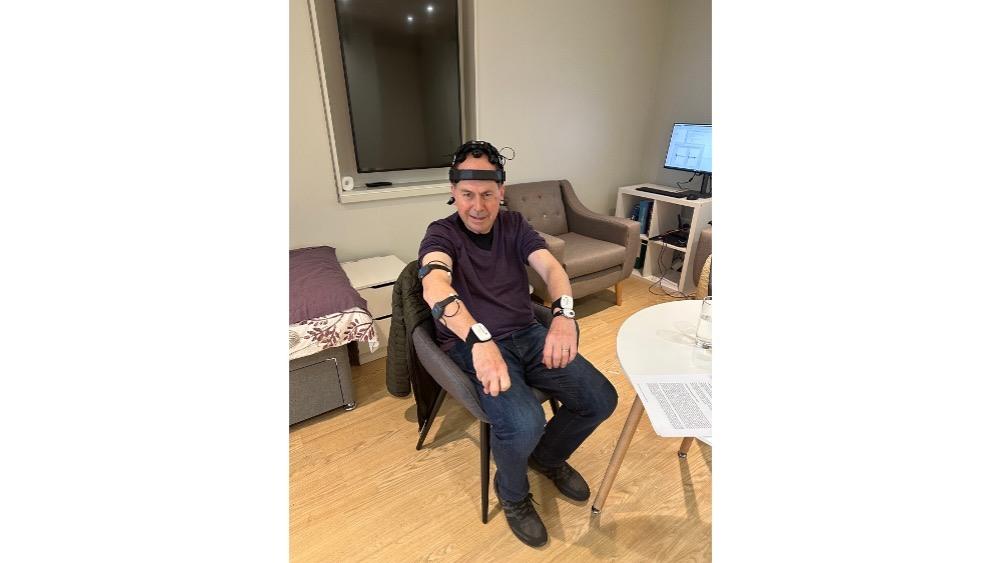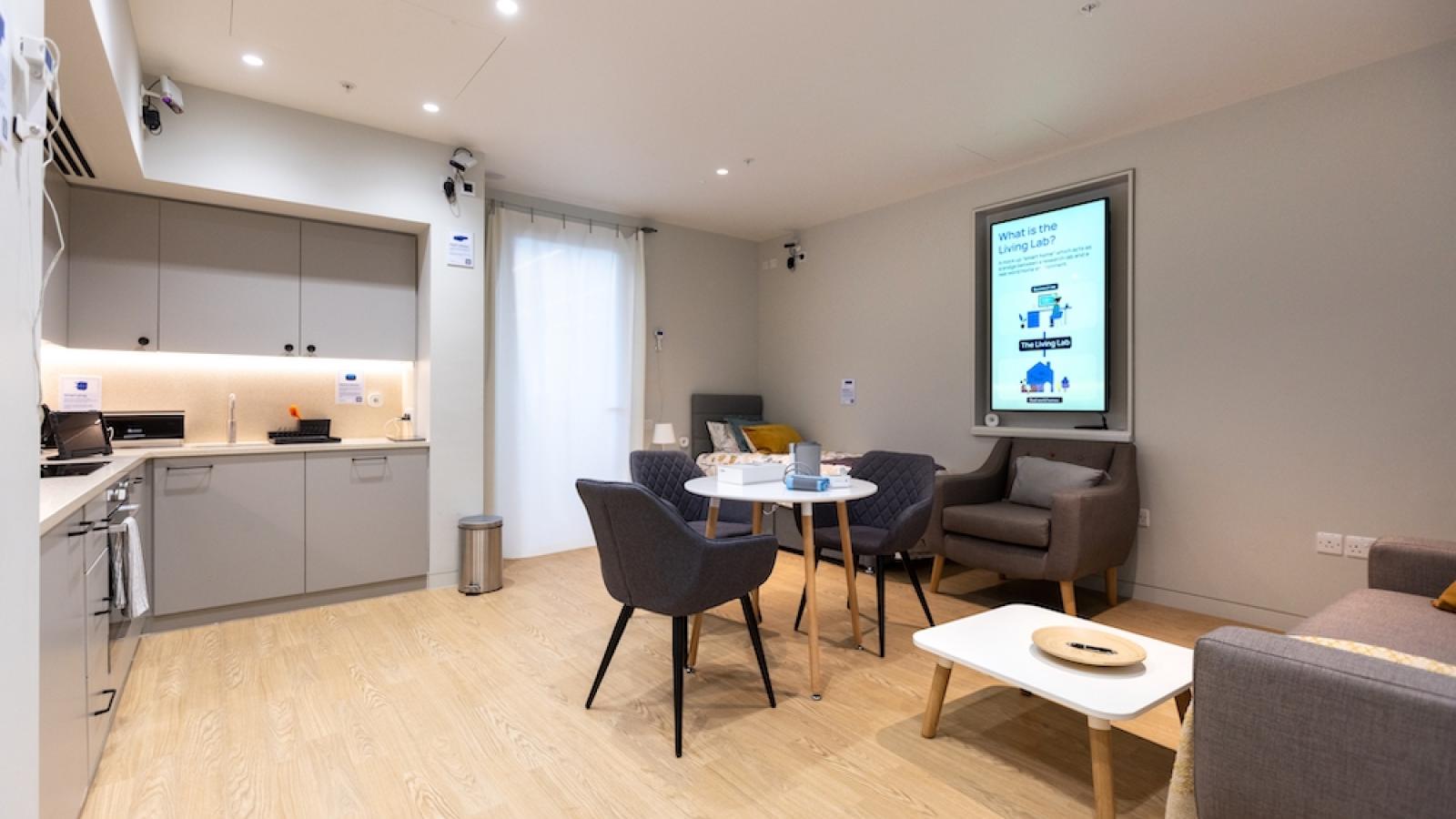This week we welcomed former BBC tech correspondent, Rory Cellan-Jones, to the living lab at our UK DRI Care Research & Technology Centre. During the visit, Rory, who is living with Parkinson’s, found out more about how smart technology can improve the lives of people affected by dementia and took part in the ongoing study. He shared his experience in the blog post below.
My week started with quite a stressful day. For nearly five hours I was under the microscope, my every move watched by scientists. They made me walk up and down, rise from a chair without using my arms, open and close my hand rapidly. I spent half an hour staring at a computer screen trying to work out which shape fitted where on a grid, one of a number of cognition tests. They even made me make two cups of tea and four slices of toast.
It was tiring but it was all in the cause of science - and potentially faster drug trials. This all took place in Imperial College’s Living Lab, a room fitted out like a small flat on the ninth floor of a tower block in West London. The lab is equipped with video cameras and a series of sensors which provide data on its occupants’ activities.
It is part of the UK Dementia Research Institute which is trying to develop technology which would allow people with dementia to be monitored so that they can live at home longer. But there is also a project to find ways of measuring the symptoms of Parkinson’s more accurately which, as I’ve explained here before, is vital if we are to know whether new drugs are working.
I was told to arrive at the lab at 11, the time I take my second daily round of Parkinson’s drugs. Then I was fitted out with half a dozen wearable sensors and a helmet contraption which made me look like the Terminator but which measured my brain waves. By that time the drugs had kicked in and one of the team, a doctor who works with my consultant at Charing Cross Hospital, gave me the standard UPDRS tests which I have at every appointment to assess my Parkinson’s symptoms.

My mental strength was also tested in the cognition tests. Counting back in sevens from a hundred, naming the current Prime Minister, and even the last one, went fine - remembering where on a grid the chicken was in relation to the dice proved a lot more challenging.
Then as 3pm approached and my next round of drugs was due, I was asked to make tea and toast again - in theory, with the effects of the 11am pills wearing off, my ratings for effective work in the kitchen should have been quite a deal worse.
Finally, exhausted by my efforts, I was able to remove the headset and sensors and head for home. It had been fun but the next day I called the man running the project Dr Shlomi Haar to get a better idea of what benefits could come to people with Parkinson’s from the research. He said there could be a huge prize - shorter and cheaper clinical trials for new drugs:
“If we can assess more accurately, and I can detect change in disease progression not after two years of study, but after three months of study, then it completely revolutionises clinical trials both in terms of cost and in terms of the patients needed. I would need less participants for each clinical trial because I’d have much more conclusive results.”
The importance of this was hammered home to me by a news story which broke the day I was at the lab. Parkinson’s UK revealed that a trial of an experimental drug designed to deal with one of the worst side-effects of levdopa had shown promising results. NLK-111 had proved safe and effective in combating dyskinesia, the involuntary jerking movements that many people suffer after taking the main Parkinson’s medication.
This seemed like exciting news - until I read on and found that the drug had only passed a 2a trial - I hadn’t even know that phase 2 trials could be split into two stages. Apparently a 2b trial will take longer and require more patients and then there is probably a long gap to phase 3 and we could be talking 2030 before doctors are prescribing the drug. So let’s hope that Dr Haar and his team at the Living Lab come up with technology that can get such trials moving at warp speed rather than at the funereal pace we see today.
Find out more about Dr Shlomi Haar's work by watching the video below, or visiting his UK DRI profile.
Source: Rory's Always On Newsletter
Article published: 23 March 2023
Image credits: Thomas Angus, Imperial College London, & Rory Cellan-Jones
